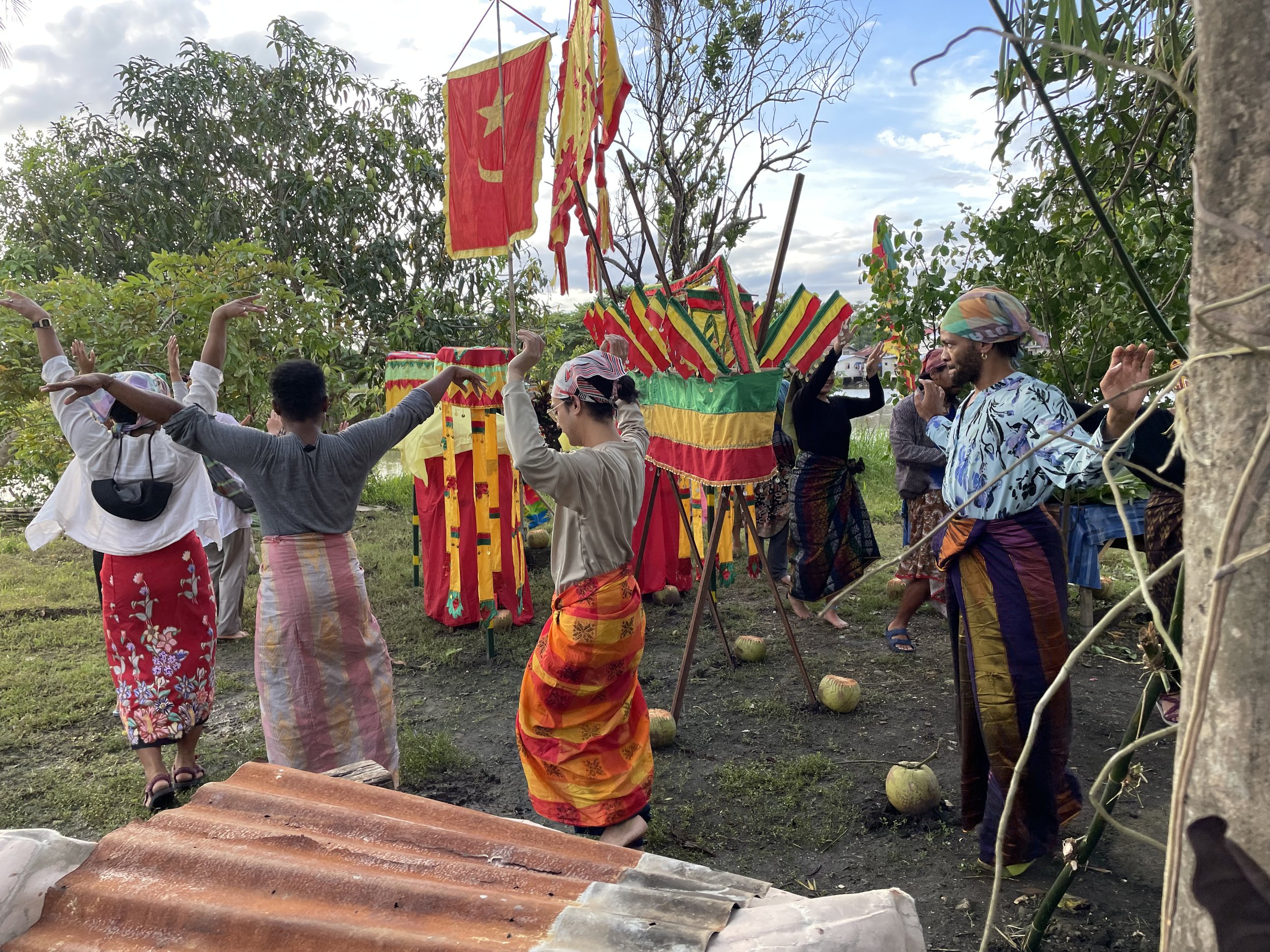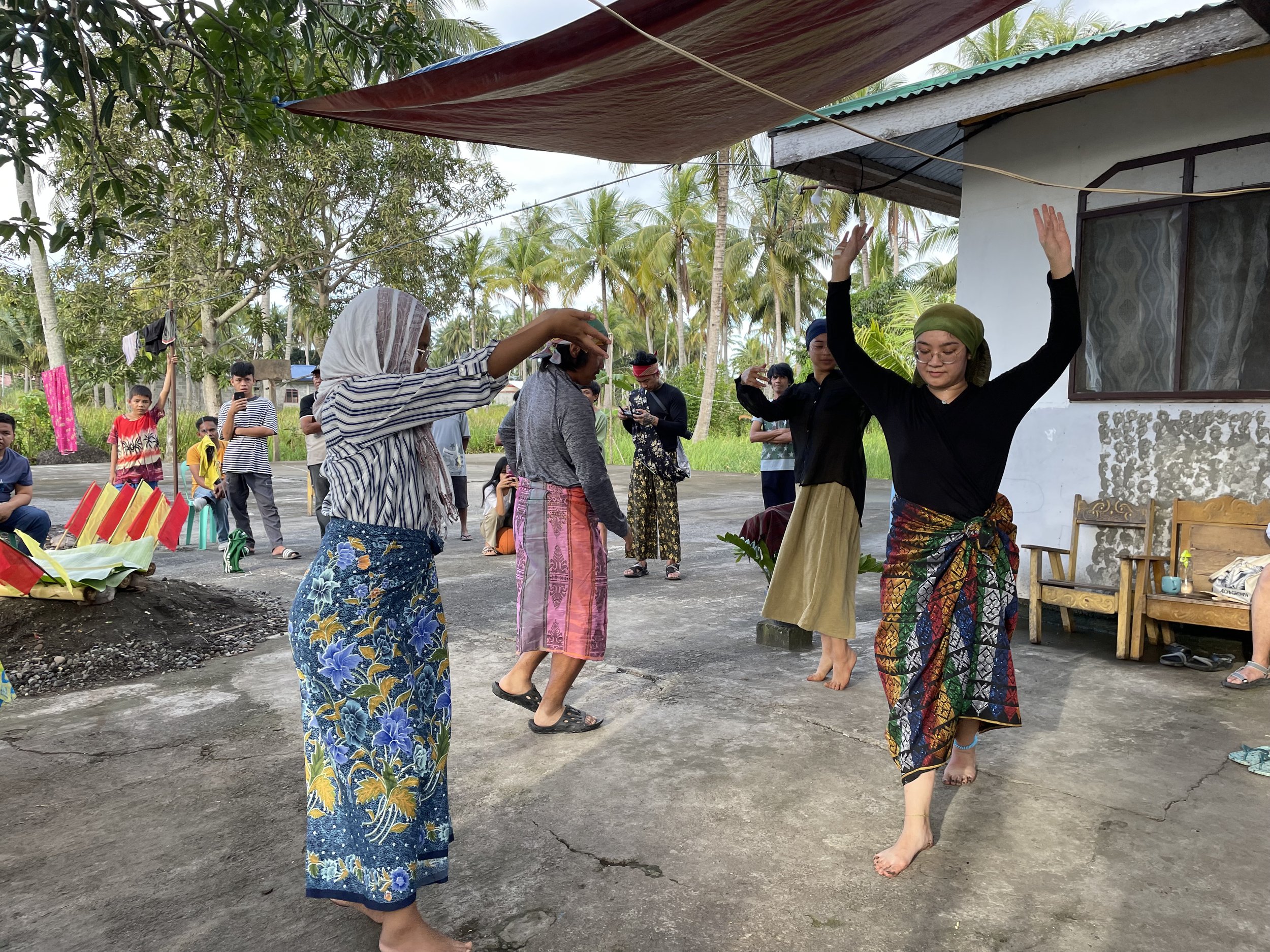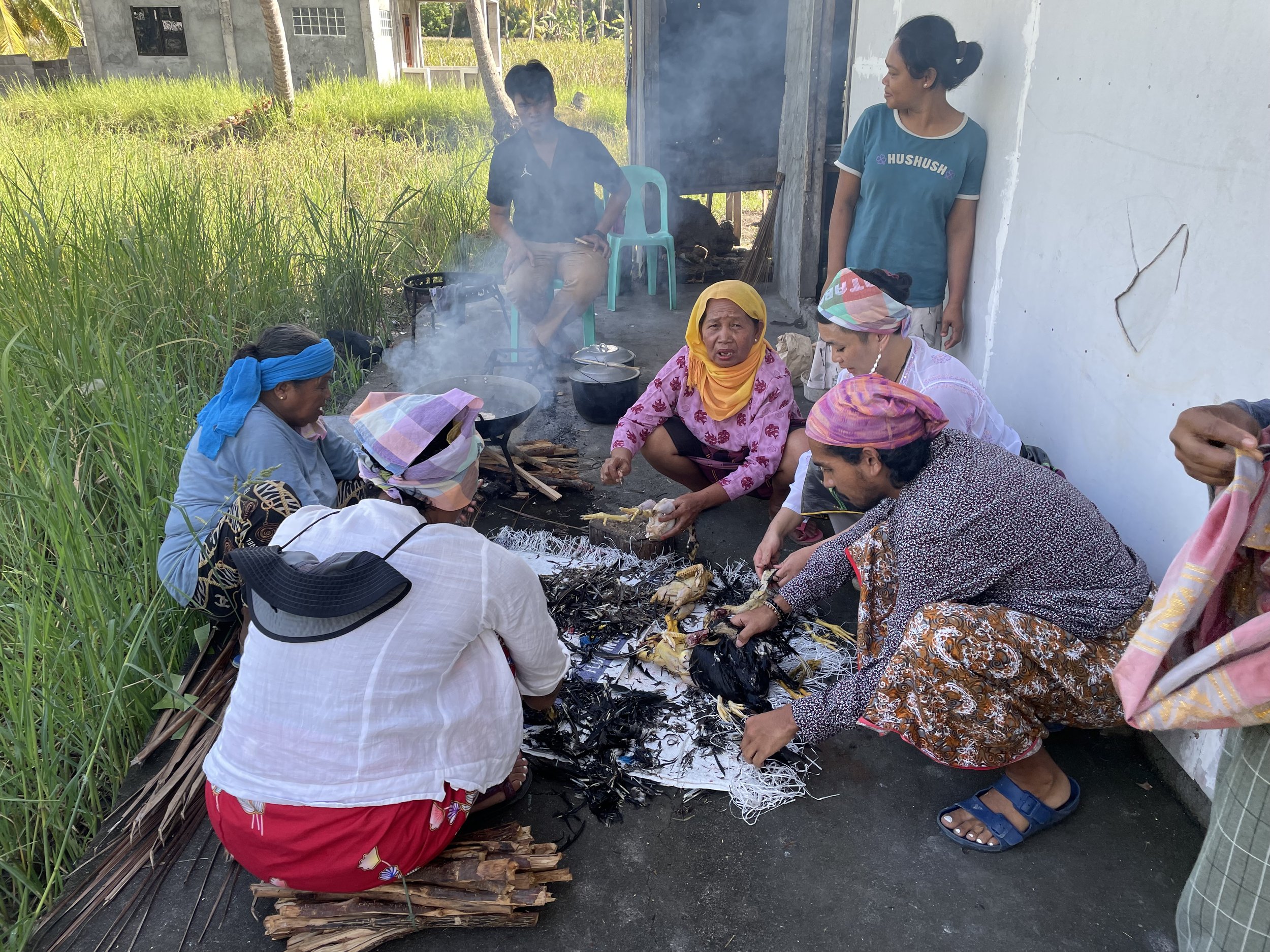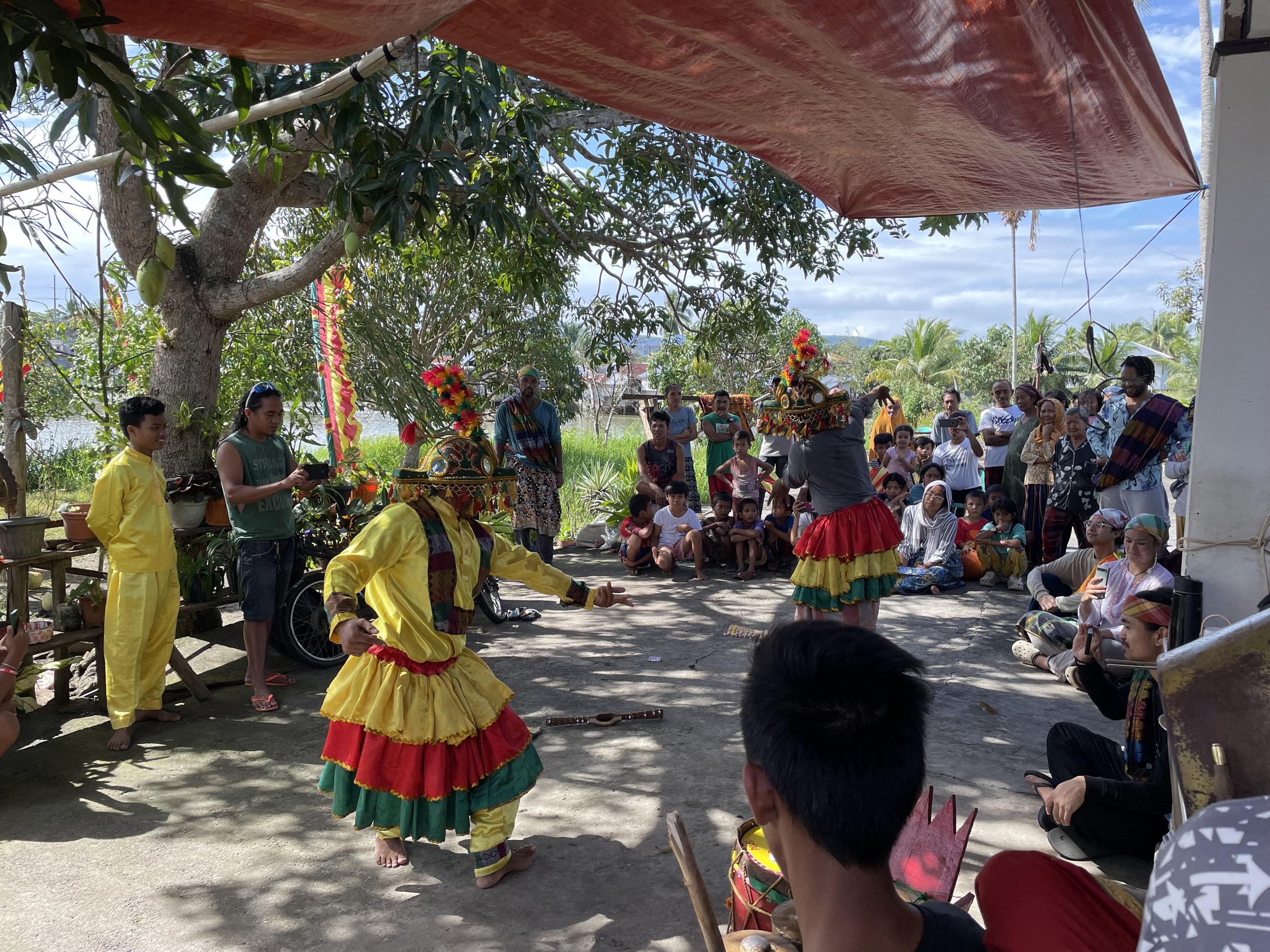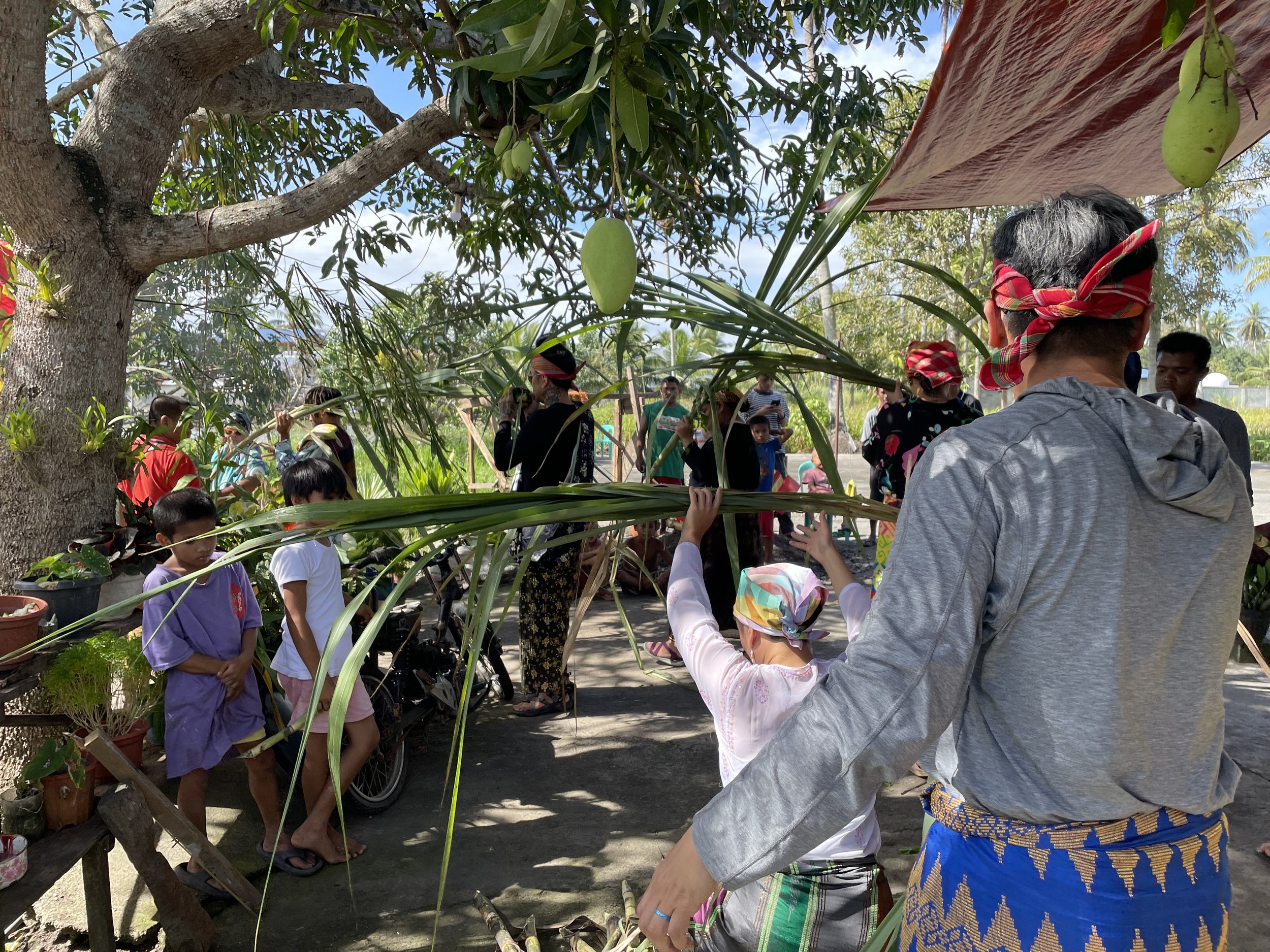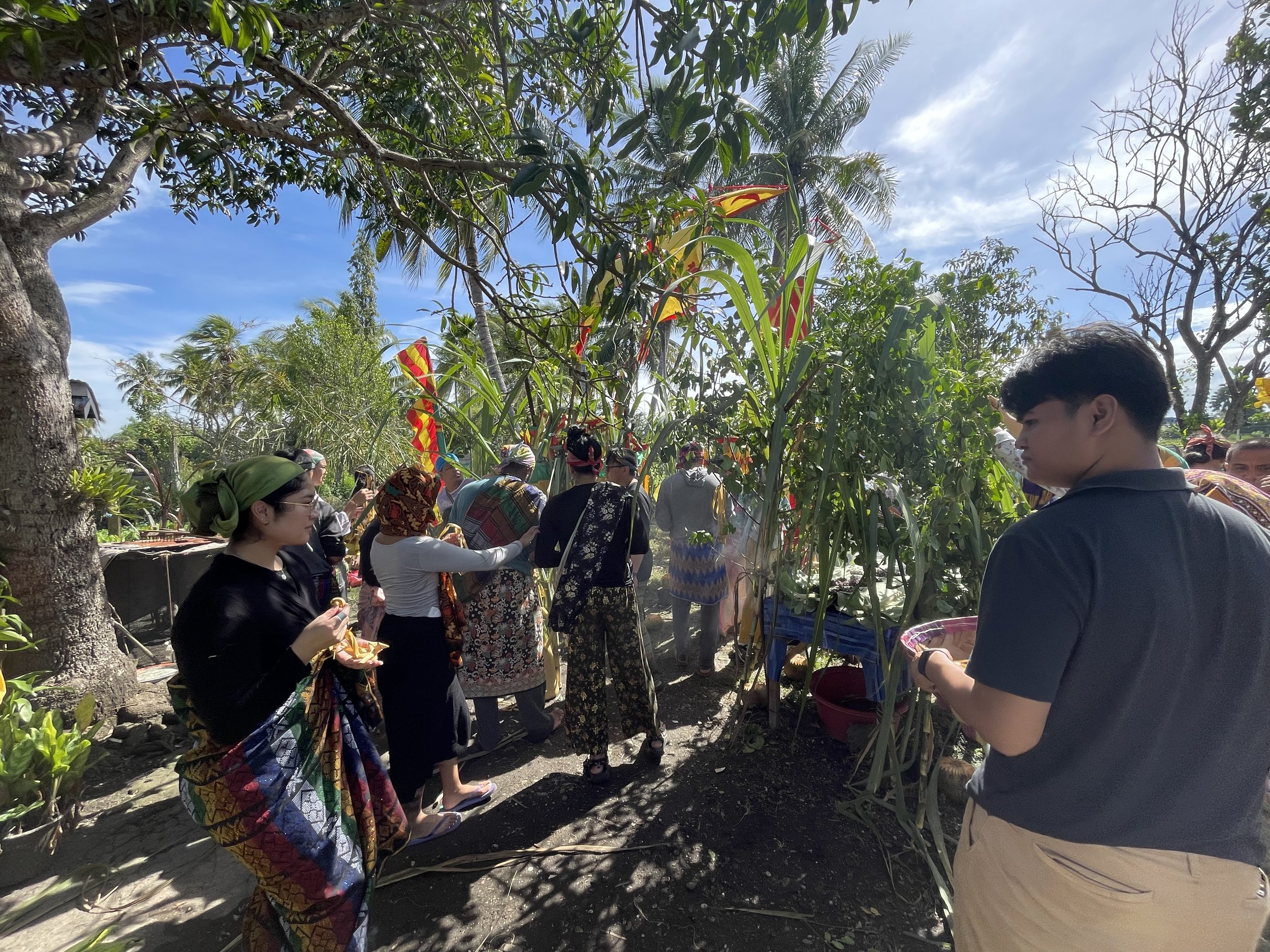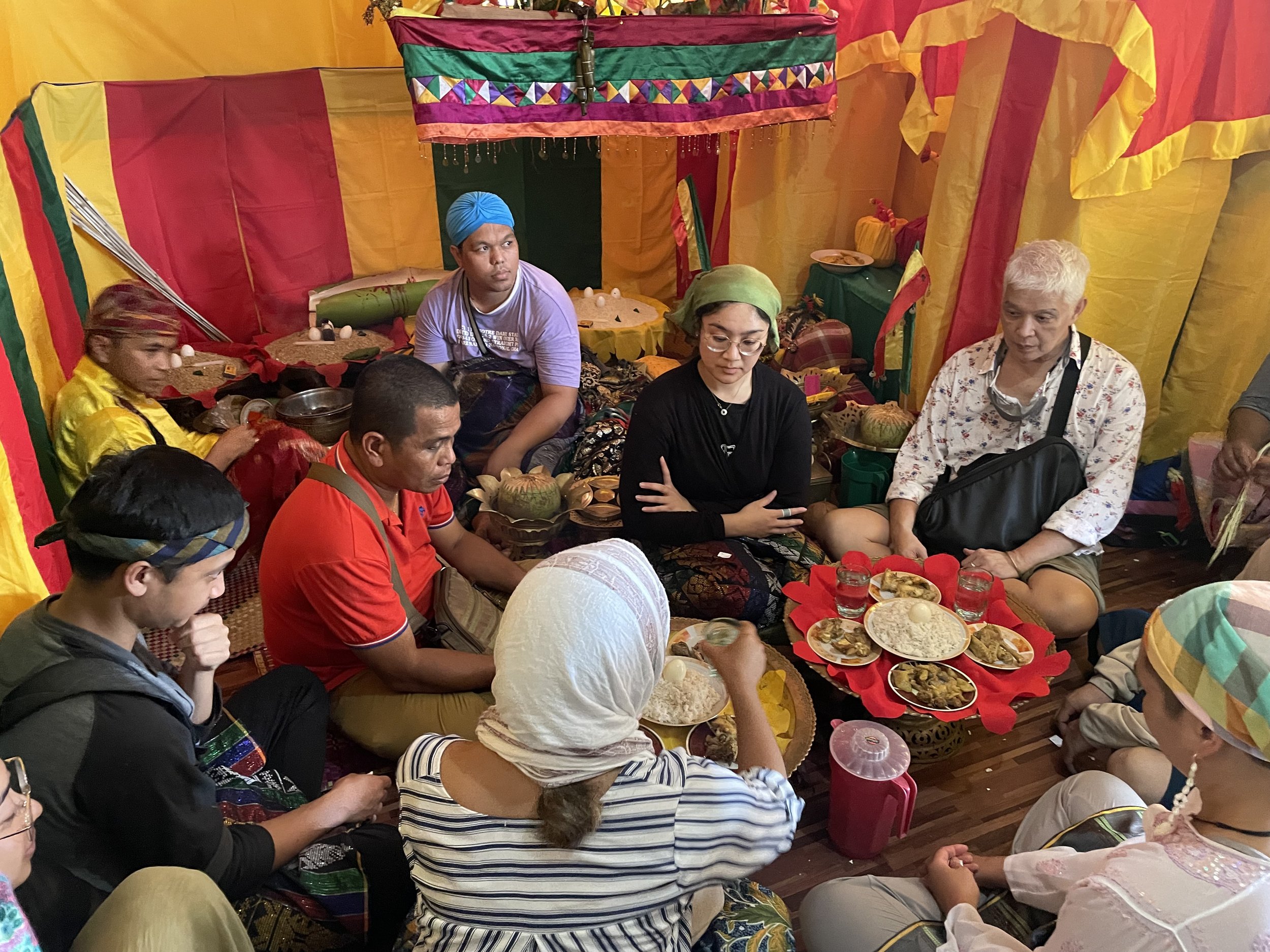Memories of Mindanao, Part 10
By Conrad J. Benedicto
Long before your eyes encounter a river, your body feels its pull. There is a subtle tug on your footsteps, in the same direction the trickles, rills and roots are following beneath your feet, to where the lushness and noise of life are congregating. Like a meteorite falling into the Earth’s gravity well, your arrival at its banks feels inevitable.
“The land still lay sleeping by the riverside when we arrived at dawn. Wisps of bright kulintang music wafted towards us from the ceremonial house like echoes from a timeless place. ”
Thus, my feet were drawn toward the Pulangi on the morning of the last ritual of the Ipat, a three-night indigenous healing ceremony made possible by Faisal Monal, whom I would describe, among many other things, as a bona fide lorist. The land still lay sleeping by the riverside when we arrived at dawn. Wisps of bright kulintang music wafted towards us from the ceremonial house like echoes from a timeless place.
I stole some time to touch my bare feet upon the roots of a coconut tree I had visited during the previous nights and watch the wind move through the grasses. Eventually I made my way to the kulintang and when I was asked to play, I did so without the timidness I’d felt before. I played Danny’s Kaluntang and his Kapagonor as the sun peeked from behind the clouds. The warm rays felt good on my face. When I finished, one of the Ipat musicians started tapping the fast agong pattern for Tidtu. He asked with a sly smile “Kaya ba?” Can you do it? And I did. I played the song happily, having attained a feeling of confidence and belonging. Midway through the song, the KULARTS participants began an impromptu dance around the outdoor ceremonial area, which was festooned with bright red and yellow banners. They gracefully wound their way around the food offerings and totems, joyous at being able to offer their artistry at the end of a grueling three-night spiritual journey. When Manai asked us to do it all again, it was like living a magical moment twice.
I played with mindful abandon during this KULARTS prologue to the closing ritual. It was exhilarating. I didn’t feel my old teacher’s presence in any kind of supernatural way, but that morning was the closest I have ever felt to Danny again since he died. This was enough for me to speak to my grief. And after all, I play the songs he taught me every day—that is his spirit running through me too.
I also lost my father during the Covid pandemic. I was terrified that this pain would well up uncontrollably during the Ipat ceremony too. I was already very tender in the days leading up to Ipat, gulping down sobs at every single evening debrief/sharing circle. But it didn’t, thankfully. Did the Ipat allow me to process and heal from the pain of losing my dad and my music dad? I’m not sure. But if my wife ever tells me I should go see a therapist, now I would.
Conrad J. Benedicto
A teacher, author, and kulintang musician who studied with Master Danongan Kalanduyan from 1997 to 2016. He was Master Kalanduyan’s apprentice within the Alliance for California Traditional Arts’ Apprenticeship Program in 2007 and again in 2013. He founded and leads the Kulintang band, Kulitang Dialect, and has performed at the Filipino American International Book Fest Gala, Gongster’s Paradise Kulintang Festival, SF Parol Lantern Festival, and more. He has received grants for his music from the San Francisco Arts Commission and Zellerbach Family Foundation. He teaches social studies, environmental education, and kulintang music at Balboa High School in San Francisco.
Publications:
Musalaya’s Gift, Fantasy Novel
The Warriors of Dagad Pass by Bumbakal Saksi, Musalaya’s Gift Graphic Companion Book
